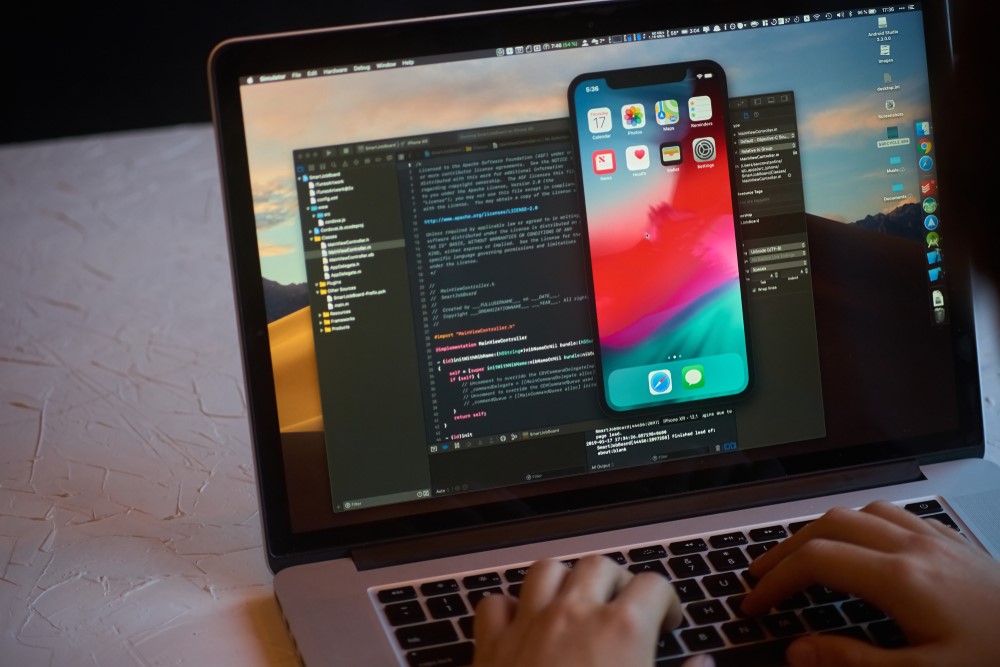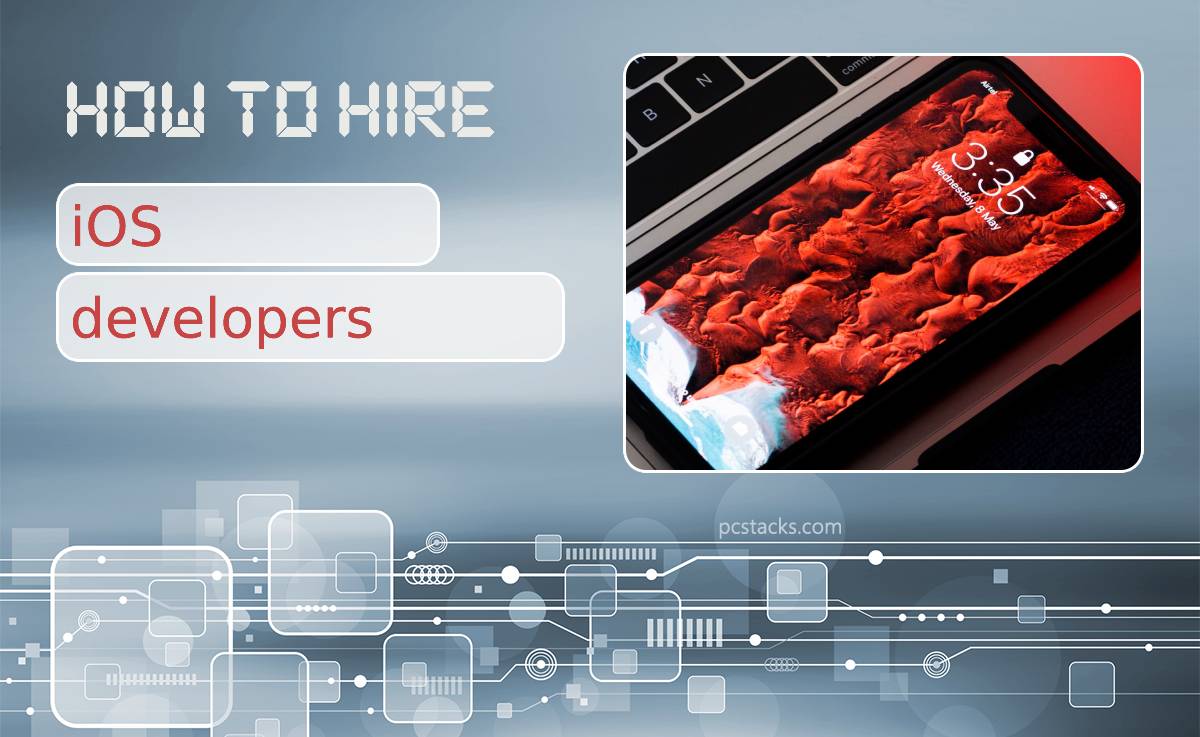Despite having a smaller market share, iOS makes more money than Android. Consumers spend up to 80% more on iOS apps than Android apps. Apple’s App Store has over 2.22 billion apps and connects businesses of every size across 175 countries. According to the latest report by Apple, it has paid over $260 billion to app developers since the App Store launched in 2008.
Apple’s iOS fanbase is exceptionally loyal and devoted to the company. Customers actively use and are willing to pay for all company offerings. As a result, development for this platform will remain relevant for a long time, and the need to hire iOS developers will grow tremendously. To achieve your business goals by building robust applications, you must employ developers proficient in Objective-C/Swift, Xcode, etc.
In this article, we will discuss all the key aspects you must consider before hiring the best talent for your organization. Let’s dig in.
Five Key Aspects to Consider while Hiring iOS App Developers

1. Technical Skills
Several factors influence the decision to recruit a developer – the developer’s academic background, technical expertise, and appropriate experience are among them. It’s also worth noting that developers with experience in specialized industries rank better than others.
For example, a developer who has completed projects in eBanking, eHealth, and Internet security, commands a higher salary than someone who has only worked on eCommerce projects. Aside from the industry in which a candidate has previously worked, all developers must have a set of hard skills.
To cope with fundamental challenges and efficiently manage the iOS development process, a great developer must have the following technical skills:
- Xcode IDE experience
- Standard awareness of UI / UX
- Knowledge of the Apple Human Interface guidelines
- Language proficiency – Objective-C/Swift iOS
- Proficiency in advanced code versioning tools
- Practical experience with Core Data or Realm
- Knowledge of Metal and OpenGL
- An understanding of APIs and API integration
2. Soft Skills

Before hiring developers, you need to consider additional criteria such as cultural background, values, professional work attitude, experience, and skill set. These elements also have an essential role in determining whether or not your project will be successful.
There are many developers out there, but some prefer to work alone, and some have communication barriers; bringing such people together and attempting to work with them might soon lead to misunderstandings.
That’s why your candidate should also have most of the following soft skills:
- Critical thinking
- Discipline
- Ability to work in a team
- Self-presentation and negotiation skills
- Diligence and persistence
3. Experience

It’s like hitting a lottery when it comes to finding a great developer with relevant experience. If a developer has worked on similar-sized projects before, they will be able to grasp the needs of your project quickly and move forward properly.
When hiring developers, there are three significant skill levels to consider – junior, middle, and senior. The fundamental distinctions between these three stages are based on the experience & expertise a developer has with various projects.
1. Junior Developers
These are the least experienced developers with a basic understanding of iOS and its frameworks.
While junior developers cannot handle entire projects independently, they can assist experienced developers and execute minor jobs. A junior’s progression from junior to mid-level or senior takes roughly three to six years.
If you’re looking for someone to work on a project with a tight deadline, a junior developer might not be the best choice. On the other hand, if you’re developing a permanent in-house team, it’s ideal to hire developers who are just getting started to learn from the more experienced team members and align with your company’s culture.
2. Middle-Level Developer
When trying to hire a middle-level app developer, look for someone who has at least 2 to 4 years of experience with iOS development. A middle-level developer has worked on several projects. This means that they can now independently manage projects from start to finish. They also have experience with the UI/UX app design process.
Apart from what a junior-level developer knows, the middle-level developer can do the following:
- Hands-on experience with coding in Swift and Objective-C.
- Familiar with Core Data, SQLite, and the theory behind offline caching.
- In-depth understanding of concurrency and asynchronous programming.
- Familiar with the core location, the store kit, and the map kit.
- Must know how to sign apps and distribute them to the App Store Connect platform.
3. Senior Developer
Usually, a senior developer has more than five years of professional experience. They’ve worked on various projects and have completed numerous app development and execution processes.
Such developers are usually well-organized and have excellent leadership abilities. Senior developers deal with challenging work regularly. They are also capable of testing, debugging, and reviewing code.
A major part of senior developers’ life involves the following tasks:
- Taking architectural decisions throughout the app development process, particularly for complex features.
- Guiding junior and middle-level developers.
- Creating technical documentation for future app development
- Creating and implementing development standards in line with current trends.
- Assembling development teams and establishing a GitFlow process.
- Conducting candidate interviews and vetting applicants for open positions.
- Creating job specifications, objectives, and deadlines.
Depending on your project’s requirements, you might want to hire developers from either one or all levels mentioned above. As a result, it’s critical to know who you’re hiring and what you can expect from them. To check the same, follow the two points mentioned below.
4. Review Portfolios

Before hiring developers, browse the candidate’s resume to understand their competence, knowledge, and relevant experience. It will also help you organize the interview questions. You can inquire about the specifics of their most recent projects and the positions and responsibilities they held.
The majority of developer portfolios will include hyperlinks to their apps. You can check out those apps and see how iPhone users rated those apps. The portfolio will also tell you about their preferred work style.
5. Check the Cultural Fit
In recent years, the cultural fit has become a significant component to consider when hiring candidates. Regardless of how experienced or skilled a candidate is, there is always the possibility that they may not be able to seamlessly integrate with your current team and, as a result, your requirements.
A cultural gap can rapidly lead to misunderstandings and conflicts, which is the last thing you want in the workplace. In addition, prejudice, language hurdles, and other issues can arise when working with people from different cultural backgrounds, and these are all variables that might cause workflow halts.
To meet your deadlines promptly, you’ll need to hire developers who can readily integrate with your team and share a similar mindset.
Conclusion
Hiring the right people for your organization is a challenging process, but it is extremely important to meet the business needs and build great products and services.
You must evaluate the candidate’s technical skills, soft skills, experience, and portfolio before you make the hiring decision. Also, keep in mind that checking for a cultural fit is also crucial to ensure that the new developer can work well in the team and help build scalable mobile applications while solving challenging problems.
Author’s Bio
Ankit is a writer and researcher who has extensively worked on blogs, emails, websites, applications, video scripts, and social media content for Govt. of India (Ministry of MSME and CBSE), global brands (Reebok and Abbott Healthcare), and homegrown brands (Republic TV, TimesPro, Chitale Bandhu and Kolte Patil Developers).




